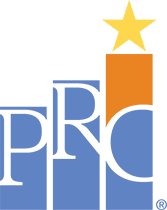PRC’s 2019 National Consumer Study Reveals New Data about Healthcare Consumer Habits
National Study Identifies Consumers Trends and Details New Insights for Healthcare Marketers
OMAHA, NEB. (PRWEB) SEPTEMBER 25, 2019
Current healthcare consumer trends remind organizations that patients are consumers and consumers are patients. But this shift in healthcare attitudes and perceptions doesn’t mean organizations need to abandon their brand strategies. New research from PRC, a national healthcare market research organization, reveals how understanding new behaviors and fitting your organizational strategy into the new model goes a long way in satisfying healthcare consumers.
At its core, consumerism reflects the desire of healthcare consumers to interact with healthcare as they do with other industries, such as retail. This compounds among younger consumers—patients who like to have options and want to feel empowered to make their own decisions about healthcare.
The National Consumer Report, published September 18, reveals the results of a random survey of healthcare consumers across the country, specifically looking for habitual trends. The study measured:
- Healthcare utilization and preference
- Advertising
- Importance of factors when choosing a doctor
- Impact of the internet on healthcare consumption, including the use of telemedicine and patient portal
Given recent market trends and developing technology, the study also closely examines how consumers search for healthcare online and how those behaviors impact care decisions. “The national consumer report confirms what many have been saying about the changing landscape of healthcare consumption,” Keith Schneider, Director of Consumer & Engagement Studies at PRC, said. “Consumers want to have a choice to ensure they are making the best decision for them, even if that decision is to bypass receiving care all together. Today, it is less about ‘selling’ your services to consumers and more about ‘informing them’ in ways they want information.” The results point to relevant data about cross-generational care, attitudes which impact the political decisions surrounding American healthcare, and the expectations consumers have concerning their quality of care.
Rising Generations
Comparing responses of different age groups demonstrates a growing need to accommodate the consumption habits of young Gen-Xers and aging millennials. The survey found that in 2019, consumers under the age of 45 are less likely to have one preferred hospital or a specific doctor they visit, are more likely to have used a retail clinic and telemedicine, and typically interact with the internet for care advice on a much grander scale than older generations.
Further, these consumers are much more likely to use social media to find a doctor and to try home remedies found online before setting foot in a care setting. Ever cost-conscious, these populations often contact multiple facilities to inquire about cost before choosing a place for care and are more likely to bypass care entirely because of high costs.
Political Relevance
Partly in response to cost barriers, the future of American healthcare occupies the minds of many voters in the 2020 election. Some feel there should be a government-led, single-payer system, while others feel that consumers need to have capitalistic competition to obtain the best care. Consumers like choice, but the high cost of care, combined with the availability of information on the internet (whether credible or not), has caused more consumers to take care into their own hands rather than face medical debt—a trend leaders of all kinds should consider when creating healthcare policy in any capacity.
Branding for Excellence
In general, PRC has found that fewer consumers have a preferred hospital, though those that do consider the quality of care at that hospital to be excellent. The current state of competitive healthcare in most markets means institutions must meet the high demands for an excellent patient experience. However, that experience is not just about having an ailment remedied. Rather, this encapsulates each moment within that experience—from first arriving for care, to paying the very last bill, every touchpoint matters. If consumers feel that their experience was less than excellent, they’re increasingly comfortable seeking care from a local competitor.
Notably, expectations for excellence change outside traditional care settings. Retail clinics, urgent care centers, and telemedicine offer consumers additional options beyond the hospital. Despite not rating the overall experience for any of these options as high as the ratings for hospitals, consumers typically use these services for less serious ailments, often due to their convenience and lower cost.
That said, providing an excellent patient experience still results in significant gains for healthcare institutions. Consumers who feel that their preferred hospital is excellent are highly likely to share that opinion, both online and with friends and family. Therefore, a healthcare organization’s dedication to excellence means more than keeping patients, but also creating brand ambassadors and loyal consumers.
The study consists of 1,500 total surveys with a target of reaching 375 in the four regions across the continental United States. Healthcare decision makers in each household shared their responses either over the phone or online. The full report can be downloaded here.
Professional Research Consultants, Inc., (PRC)
Since its inception in 1980, PRC has helped more than 2,200 healthcare organizations achieve their research objectives by collecting and analyzing timely, accurate, and reliable feedback from patients, employees, physicians, and the community at large. We are proud to be at the forefront of innovation in the healthcare market research industry. PRC helps healthcare organizations achieve excellence by collecting and analyzing timely, accurate, and reliable feedback through five research divisions: Patient Experience, Employee Engagement, Physician Partnership Solutions, Consumer and Brand, and Community Health Needs Assessments. PRC offers its clients real-time feedback through Esurveys, Star Ratings for both Providers and Practice Locations, and a mobile app to track PX progress from any device, anywhere. PRC’s Excellence Accelerator team provides world class consulting, coaching, assessments, and speaking services.
